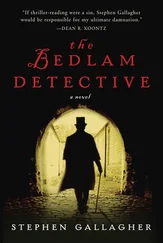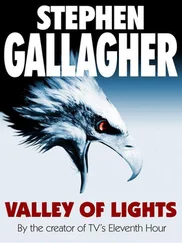• • •
I needed to nap before our night patrol. The soldiers wanted to raid a house, but battalion intel had no houses to raid. Instead we were to escort the engineers as they filled potholes along the highway to the east. The field-grade officers referred to counterinsurgency as “a thinking man’s war,” which appealed to the left coast elitist in me, but deep down, I wondered how thoughtful using money as a weapon really was. It could get complicated, certainly, and messy, like downstairs at the gate. But thoughtful?
At a metal rack upstairs, in the hallway, I stripped away the apparatuses of war and hung them on hooks one at a time. There was a ritual to donning armor, deliberate and purposeful, like the warriors of old dressing for battle, but taking it off always seemed an exercise in frenzy. The helmet came off first, my scalp gasping for air; then the slung rifle; the knee pads that were really extra-large elbow pads because my matchstick legs couldn’t hold real knee pads; the elbow pads that were in fact elbow pads; then the vest that held our extra rifle magazines and Jolly Ranchers. I ripped apart a set of Velcro straps at my sternum and lifted the body armor up and over my shoulders, a turtle escaping its shell, and set it on the tile floor. I’d shed sixty pounds of gear in ten or so seconds. Once I bent over and loosened the laces of my boots, I felt human again.
Our boxy, windowless room smelled of dirty mop water. Along the near wall, at the foot of the bunk I’d once shared with our old platoon sergeant, our new platoon sergeant was rifling through a cardboard box of books.
“The hell, Sergeant Chambers,” I said. “Those are my things.”
There was no response, so I repeated myself.
This time he looked over with slate-gray eyes and smiled. Bits of dark brown snuff covered his teeth. His tan, sweat-stained undershirt was tucked in, and flip-flops peeked out from the bottom of his uniform pants. He usually napped through the late afternoon.
“Lawrence of Arabia, sir?” he said, lifting a faded, dog-eared copy of The Seven Pillars of Wisdom I’d ordered online months earlier. “Self-aggrandizing bullshit. You should’ve gotten the abridged version. Saved yourself some time.”
We were alone. He always managed to fill a room with his presence, each slight movement a little tremor of possibility. I’d never noticed it before, but his hands, large and ragged, shot out of his forearms rather than tapering in from them, like he didn’t have wrists. I walked over to the box and pulled out another book, squaring my shoulders. Built like a piano, he had more than a few pounds on me, but I held a sizable height and reach advantage, if things came to that.
A puncher’s chance , my brother would’ve said. A fool’s hope , my mom would’ve replied.
“What about Che?” I asked, holding up a copy of Guerrilla Warfare . Its thinness flapped in the fan’s wind. “ Viva la Revolución ?”
He snorted. “We offed that fuckstick in the Bolivian jungle. La Revolución no viva ,” he said.
These books were the only possessions in Iraq that I cared about. I wanted to tell him to stop challenging my authority all the damn time, not to mention stay out of my personal effects. But the moment necessitated restraint. He was the new platoon sergeant. I needed to work with him, at least until I could figure out a way to link him to the alleged kill team. A thinking man’s war, indeed. I exhaled through gritted teeth, slow and sure, and smiled.
“It wasn’t technically ‘us,’ ” I said. “But true enough.”
He set down the Lawrence book and walked across to his own bunk, six hollow-eyed skulls on the underside of his right arm swaying like voodoo on a string. After putting a large wad of dip into his mouth, he kneeled on the ground and pulled an olive-green trunk out from under his bed. After unlocking it, he reached in and grabbed a thick paperback.
“Want to read about insurgencies?” he said, tossing it to me. “Don’t read their own mythologies. It’s all propaganda. Read that,” he said, pointing to the book I’d caught. “That’s how an empire deals with the barbarians.”
“Huh.” It was Caesar’s Conquest of Gaul . “Didn’t know you were such a reader. But Caesar didn’t write propaganda? ’Course he did.”
He snorted again and slurred through the dip nestled in his cheeks. “Try this one, too,” he said, throwing The Confessions of Saint Augustine in my direction. “If you’re into that sort of thing.”
He locked the trunk and slammed it back underneath his bunk. I pretended to study the back cover of his second book recommendation. I’d read it before. Parts of it, anyhow.
“Tell me, Lieutenant.” I put down the book to find Chambers a foot away from me, looking up with those damn gray eyes. His chest rose and fell in slow breaths like hills, and he smelled of wet tobacco. “What do you think we’re doing here?”
I studied a crack in the Sheetrock of the rear wall. “Making a fucked-up situation less fucked-up, I guess,” I said. “You were over here when civil war seemed inevitable. The Surge pushed everyone back from the brink. We need to maintain that.” Out of the corner of my eye, I saw his head tilting, wanting more — of what, I didn’t know. “What about you?”
He forced a choked laugh. Then he blinked, finally. “I’m a simple cog in the machine. Just a door kicker lucky to have his high school diploma. Don’t get paid to think.”
“Well.”
He started walking back to his bunk, but then turned around. “One more thing. We got to change the platoon name. Hotspur? That shit is amateur hour. We need something hard.”
“I like Hotspur,” I said. “It’s got panache.”
“Panache.”
“Yep.” I realized I’d been leaning back into my bunk’s frame, arms crossed, copping the posture of a street hustler. I decided to be firm. “The name stays as long as I’m the platoon leader.”
Chambers shrugged. “No worries. I’ll be here for years after you leave. For three, four platoon leaders. It’s all about the endgame. Don’t they teach that at officer school?”
I grunted and told him I’d see him at the roast later. Unable to find sanctuary in my own room, I spent the next hour in a part of the outpost I was rather unfamiliar with: the small gym across from the terps’ room. Dumbbells didn’t provide answers, but they did provide purpose.
• • •
I walked outside to the back patio. Night was near, the mating call of beetles just shrill enough to rise above the nearby generators that powered the outpost. Four wood picnic tables sat on a concrete slab, each squad assigned a table, forty men in sweat-starched uniforms ready to eat. I saw Chambers at one of the far tables, so I took a seat at the nearest one, next to Doc Cork.
“Welcome to family dinner, sir,” Hog said, across from us. “Smell that meat? I heard it’s ’cause one of the cooks is old friends with Sergeant Chambers. Celebrating his promotion.”
I turned to watch the goat rotate over the burn pit. It was plump, moving in slow revolutions, like a clock without a minute hand. Two joes stood at each end of the goat, turning it with a steel rod held up by stakes. Burn pits were used for all sorts of refuse, from classified documents to used batteries, but it seemed suitable for roasting local cuisine, too. Cotton candy smoke billowed from the pit, drifting west.
After waiting for the soldiers to cycle through the food line, I grabbed a plastic tray and heaped mashed potatoes, macaroni and cheese, and deviled eggs onto it, skipping the salad bowl. One of the cooks put chunks of tender, pink goat meat on my plate. It smelled of heavy pepper. In theory, I detested the military-industrial complex that made things like fresh deviled eggs in the desert possible. It was wasteful. It was excessive. It further separated us from the townspeople we’d been charged with protecting. That was all true. In practice, though, indulgence filled stomachs, and included ice cream for dessert.
Читать дальше




![Ally Carter - [Gallagher Girls 02 ] - Cross My Heart & Hope To Spy](/books/262178/ally-carter-gallagher-girls-02-thumb.webp)
![Ally Carter - [Gallagher Girls 01] I'd Tell You I Love You But Then I'd Have to Kill You](/books/262179/ally-carter-gallagher-girls-01-i-d-tell-you-i-lo-thumb.webp)






